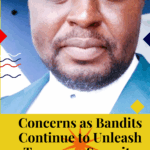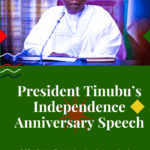As Nigeria marks its 65th independence anniversary, mixed reactions have continued to trail the nation’s journey since gaining freedom from colonial rule in 1960.
While government officials highlighted achievements in infrastructure, education, and agriculture, many ordinary Nigerians expressed disappointment, insisting that the promises of democracy are yet to translate into visible improvements in their daily lives.
Speaking in Abuja, some citizens lamented that poverty, unemployment, corruption, and insecurity remain at alarming levels despite over two decades of uninterrupted democratic governance.
A trader, Mrs. Kemi Adetunji, said:
“For 65 years, we have been told things will change. But till today, the poor are still poorer, and the leaders keep enjoying all the wealth. We have not seen the impact of democracy.”
Others, however, acknowledged certain progress. A civil servant, Mr. Hassan Musa, pointed out that the freedom to speak, vote, and criticize leaders without fear was a positive sign of democratic growth.
Political analysts argue that Nigeria’s future rests on good governance, economic reforms, youth empowerment, and strong institutions. Without these, they warn, the country risks another decade of stagnation.
As the nation reflects on its independence, the debate continues: Has democracy truly delivered for Nigerians, or has it only deepened the gap between the rich and the poor?
#NigeriaAt65 #IndependenceDay #FaceTofaceTV #NigeriaDemocracy #GoodGovernance #LeadershipCrisis #NigeriaNews #CorruptionInNigeria #YouthEmpowerment #NigeriaFuture



